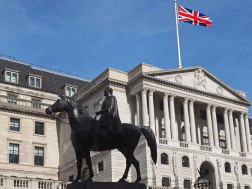The UK's unemployment rate fell to its lowest level since 1974 in the three months to July, latest official figures show.
The jobless rate fell to 3.6% over the period, according to the Office for National Statistics (ONS).
However, the squeeze on pay remains, with rises in regular pay failing to keep up with the rising cost of living.
When taking the rise in prices into account, the value of regular pay fell by 2.8%, the ONS said.
Inflation - a measure of price rises - remains at a 40 year high of 10.1%. The latest inflation figure, due out on Wednesday, is forecast to be higher.
Despite the fall in the unemployment rate, other measures suggest that the jobs market may be beginning to turn. The employment rate and the number of vacancies fell slightly in the latest figures.
"The jobs boom that really began six months after the pandemic is probably coming to an end now," James Reed, the chairman of recruitment business Reed, told the BBC's Today programme.
"There are still very large numbers of vacancies and people are still advertising a lot of jobs, and that's why we've seen unemployment continue to go down.
"The question is, what happens next? Will there be a jobs slump? That's a concern clearly but our data at the moment doesn't suggest that, because we've still got a large number of vacancies and a lot of employers are still struggling to recruit."
The number of job vacancies fell by the most in two years, down 34,000 between June and August, although the overall number of vacancies still remains historically high.
The employment rate also slipped to 75.4%, a small drop from the previous three-month period.
The continued gap between private and public sector pay growth was also visible from the ONS's figures.
Average regular pay growth for the private sector was 6% in May to July, compared with 2% for the public sector. According to the ONS, that is the largest ever difference between private and public sector, outside of the height of the pandemic period.
Labour shortages
Businesses have warned that the squeezed labour market is having a detrimental effect.
"With firms doing their best to keep afloat during a period of spiralling costs, they are also facing an extremely tight labour market which is further impacting their ability to invest and grow," said Jane Gratton from the British Chambers of Commerce.
"Despite a second month of a decrease in job vacancies, the overall number of vacancies in the labour market remains high. With over 1.2 million unfilled jobs across the country, labour shortages have reached crisis levels for businesses across many sectors and regions.
"During a period of increasing inflation, and a stagnant economy, we cannot afford to let recruitment problems further dampen growth."
Source: BBC
















